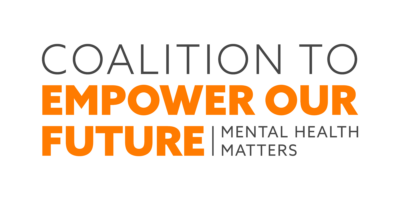A Collective Approach to Building a Brighter Future for our Kids: Meeting the Moment of the Youth Mental Health Challenge
By Glen Weiner, Executive Director Coalition to Empower our Future
As I shuttle my two kids between their various basketball, baseball and play practices, I get to see the best of what it is to be a kid today. But I’ve also seen the weight of the youth mental health challenge up close. One of the hardest things I’ve had to come to terms with over the past decade working as an education advocate is that millions of our kids are facing a mental health challenge unlike any generation before them.
According to the Centers for Disease Control and Prevention’s (CDC) 2023 Youth Behavior Risk Survey, 39.7 percent of high school students reported feelings of persistent sadness or hopelessness, 28.5 percent experienced poor mental health, 20.4 percent seriously considered attempting suicide and 9.5 percent had attempted suicide. Teachers have said that the current state of students’ mental health is also hurting their ability to learn and socialize, as well as stressing educators’ capacity to manage their classrooms.
It’s not just the problems young people are experiencing in school or the pressure of living up to the expectations placed on them. It’s a range of many complex factors, such as the constant exposure to a world that can increasingly feel overwhelming, economic uncertainty and poverty, abuse and trauma, food and housing insecurity, device usage, fear of physical harm and violence, decline in independent play, and, in some cases, the absence of the right kind of support when they need it most.
We’ve heard the statistics, seen the reports and we know these aren’t new concerns – together, they all have a meaningful contribution to the state of youth mental health and wellbeing.
That’s why I’m so proud to lead a new coalition aimed at tackling the youth mental health and wellbeing challenge from every angle. Coalition to Empower Our Future is bringing together voices from all perspectives and all experiences to convene a comprehensive conversation to better understand the multifaceted factors contributing to the state of youth mental health.
Mental health challenges do not happen in a vacuum, and this coalition reflects that truth. By bringing together clinical experts, youth, parents, industry leaders, educators, nonprofits, policymakers and others, we hope to work collaboratively in order to help shed light on meaningful and long-lasting solutions.
With any complex challenge, we know that real, lasting change will not happen overnight, and it will not happen alone. Lasting solutions must be well-informed and inclusive of all meaningfully contributing factors. If not, we may lose an opportunity for fulsome solutions that address all the factors impacting youth mental health and wellbeing.
As parents, we constantly think about the world the next generation will inherit. We want it to be a world where they can thrive emotionally, mentally and socially. We want them to feel safe, secure and confident. We want them to have the tools and the support they need to navigate the complexities of the modern world. And we want them to know that struggles with mental health aren’t something to be ashamed of but something that we take seriously. Likewise, parents also need support to help identify and manage the complex challenge that is youth mental health and wellbeing. We need to empower parents with the tools and resources they need to support their children, understanding that every kid’s experience looks a little different.
To every parent, teacher and community member who is concerned about the future of our youth, there is reason for hope. We all care deeply, and I am confident that by working together in a coordinated and urgent way, we can ensure that our children have the opportunity to grow up strong, resilient and supported. We must meet this moment for our children and their future.
###

